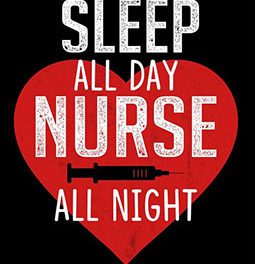By Rita La Rosa Loud, B.S.
I suppose you think my article is about another weight loss program. Perhaps a little. However, as the acronym signifies, the primary focus of our health and wellness facility is that We Inspire Good Health. Clearly, exercise and nutrition play an essential role in leading a healthy, pain-free existence. But at this stage of life mature adults declare they are more interested in being healthy and functioning better.
In last month’s article, “Proven Studies That Health is Your Wealth: Why Not Start Today! I focused on three health issues (high blood pressure, osteoporosis, diabetes). In this column, we will visit fibromyalgia and arthritis, conditions that our members are managing via a doable exercise program comprised of four basic fitness components: resistance training, cardiovascular exercise, flexibility, and functional activities.
But first, here is some information regarding these two debilitating diseases.
FIBROMYALGIA
Many with fibromyalgia, a condition with which nearly 3% of our population is afflicted, apparently more women than men, experience widespread, chronic body pain that leads to a host of incapacitating issues: muscle weakness, tissue tenderness, and shooting pains in the neck, back, elbows, and knees, as well as fatigue, and sleep deprivation.
These individuals typically stay clear of exercising, believing it would exacerbate these symptoms. According to the National Institute of Arthritis and Musculoskeletal and Skin Diseases, the opposite is true. Although these ailments may indubitably make exercising a difficult task, the good news is that regular exercise, aerobic and resistance training, is established as an effective treatment for people with fibromyalgia. Frankly, supervised strength training programs has been shown to be an excellent exercise intervention.
ARTHRITIS
A variety of arthritic conditions exist. The two major types we encountered with older adults at our fitness facility is osteoarthritis, which accounts for roughly 95% of arthritic cases, and rheumatoid arthritis, which makes up nearly 5% of arthritic cases. These conditions are typified by tissue tenderness, joint pain and dysfunction, muscle weakness accompanied by muscle loss and fat gain, which may worsen symptoms of arthritis and fibromyalgia. Several studies, including our own, have shown that resistance exercise can have positive results with persons with various forms of arthritis, including individuals with fibromyalgia.
RESEARCH REVIEWS
Seniors with arthritis who completed our resistance training program at Quincy College had beneficial outcomes. They reported less pain and distress analogous to subjects who experienced reduced arthritic discomfort presented in several research reviews; a study by Ernberg and colleagues showed improvements inpain intensity after a 15-week strength training phase. In another 15-week program of resistance exercise, Ericsson and associates showed improvements in bodily fatigue. And in a study by Larsson, alterations in muscle strength, health status and pain severity were observed in 130 women with fibromyalgia. All in all, the group that experienced significantly larger improvements in every area measured was the strength training group.
In case you are curious, here is what our arthritis and fibromyalgia participants underwent.
ARTHRITIS AND FIBROMYALGIA PROGRAM DESIGN
We offered an Arthritis and Fibromyalgia Program in 2017 at Quincy College where subjects were divided into two groups: One group performed resistance training and aerobic exercise with no dietary changes. The other group did the exact training protocol supplemented with higher protein; a plan formulated by Dr. Carolyn Apovian. Subjects consumed 0.7 grams of protein per pound of bodyweight based on a Body Mass Index of 23, as well as ingested higher quantities of water, veggies, and fruit. Overweight/obese participants followed a reduced calorie diet plan: 1,200 – 1,500 per day/women and 1,500 – 1,800 calories per day/men. The machine-based strength program consisted of upper body, lower body and midsection exercises, plus alternative resistance exercises safe for arthritic conditions. Subjects met two days a week for 11 weeks and performed 1 set of 8-12 repetitions at moderate weight loads, using slow and controlled movement speeds, and full range of pain-free movements. Once 12 repetitions were completed in proper form, weight loads increased by 5%. All subjects also underwent a pre- and post-body composition assessment to determine muscle/fat ratio.
SUMMATION
Evidence supports American College of Sports Medicine’s resistance training guidelines for persons with arthritis and fibromyalgia. As follows, studies incorporating strength training programs of sensible resistance exercises for both the upper and lower body, and midsection, two or three days per week; up to three training sets of 8 to 12 repetitions using controlled movement speeds in pain free movement ranges, are regarded as an effective intervention and lifestyle module for people suffering from osteoarthritis, rheumatoid arthritis, and fibromyalgia.
Wayne Westcott, Ph.D. Center for Health and Fitness at Quincy College
If you would like to tackle your health and fitness concerns, including fibromyalgia or arthritis, by participating in our supervised strength, aerobic, stretching and functional training program, the Wayne Westcott, Ph.D. Center for Health and Fitness is located at President’s Place, 1250 Hancock Street, Quincy, across from the T-Station. To schedule a tour, a free training, or to learn how to register, call Rita at 617.405.5978. Free 1-2-hour parking is available on Hancock, Washington, Coddington Streets, and a parking garage is next to the building for a nominal fee.
Rita La Rosa Loud holds a B.S. in Exercise Physiology with additional education in Sports Medicine and Athletic Training. She is NASM Certified; has been actively involved in the fitness industry for over 35 years. She is an author and writes fitness related articles for various fitness publications. Rita is a Fitness Researcher and Directs the COVID compliant, Wayne Westcott, Ph.D. Center for Health and Fitness at Quincy College. She can be reached at 617.405.5978 and is available for speaking engagements.



